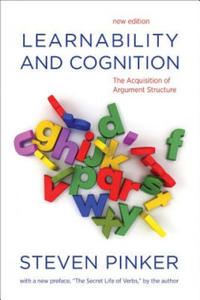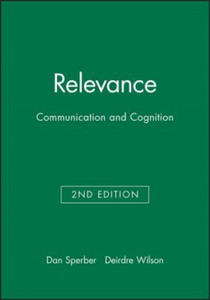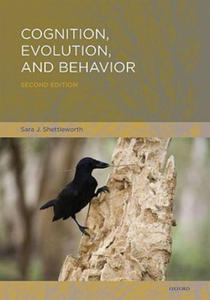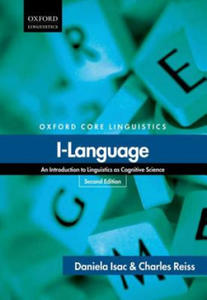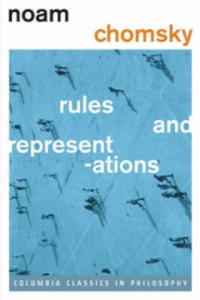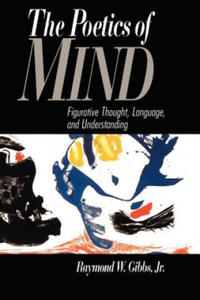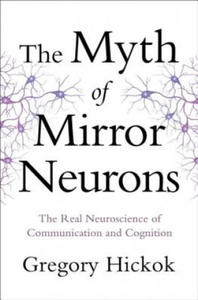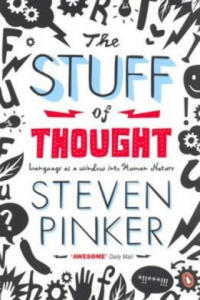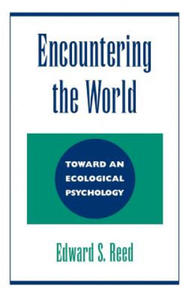libristo language cognition and human nature 3007053
- znaleziono 13 produktów w 1 sklepie
Language, Cognition, and Human Nature Oxford University Press Inc
Książki / Literatura obcojęzyczna
Language, Cognition, and Human Nature collects together for the first time Steven Pinker's most influential scholarly work on language and cognition. Pinker is a highly eminent cognitive scientist, and his research emphasizes the importance of language and its connections to cognition, social relationships, child development, human evolution, and theories of human nature. The thirteen essays in this eclectic collection span Pinker's thirty-year career, ranging over topics such as language acquisitions, visual cognition, the meaning and syntax of verbs, regular and irregular phenomena in language and their implications for the mechanisms of cognition, and the social psychology of direct and indirect speech. Each outlines a major theory - such as evolution, or nature vs. nurture - or takes up an argument with other prominent scholars such as Stephen Jay Gould, Noam Chomsky, or Richard Dawkins. Featuring a new introduction by Pinker that discusses his books and scholarly work, this book represents a major contribution to the field of cognitive science, by one of the field's leading thinkers.
Sklep: Libristo.pl
Learnability and Cognition MIT Press Ltd
Książki / Literatura obcojęzyczna
Before Steven Pinker wrote bestsellers on language and human nature, he wrote several technical monographs on language acquisition that have become classics in cognitive science. Learnability and Cognition, first published in 1989, brought together two big topics: how do children learn their mother tongue, and how does the mind represent basic categories of meaning such as space, time, causality, agency, and goals? The stage for this synthesis was set by the fact that when children learn a language, they come to make surprisingly subtle distinctions: pour water into the glass and fill the glass with water sound natural, but pour the glass with water and fill water into the glass sound odd. How can this happen, given that children are not reliably corrected for uttering odd sentences, and they don't just parrot back the correct ones they hear from their parents? Pinker resolves this paradox with a theory of how children acquire the meaning and uses of verbs, and explores that theory's implications for language, thought, and the relationship between them.As Pinker writes in a new preface, "The Secret Life of Verbs," the phenomena and ideas he explored in this book inspired his 2007 bestseller The Stuff of Thought: Language as a Window into Human Nature. These technical discussions, he notes, provide insight not just into language acquisition but into literary metaphor, scientific understanding, political discourse, and even the conceptions of sexuality that go into obscenity.
Sklep: Libristo.pl
Relevance - Communication and Cognition 2e John Wiley and Sons Ltd
Książki / Literatura obcojęzyczna
Relevance, first published in 1986, was named as one of the most important and influential books of the decade in the Times Higher Educational Supplement. This revised edition includes a new Preface outlining developments in Relevance Theory since 1986, discussing the more serious criticisms of the theory, and envisaging possible revisions or extensions. The book sets out to lay the foundation for a unified theory of cognitive science. The authors argue than human cognition has a goal: we pay attention only to information which seems to us relevant. To communicate is to claim someonea s attention, and hence to imply that the information communicated is relevant. Thus, a single property -- relevance is seen as the key to human communication and cognition. A second important feature of the book is its approach to the study of reasoning. It elucidates the role of background or contextual information in spontaneous inference, and shows that non--demonstrative inference processes can be fruitfully analysed as a form of suitably constrained guesswork. It directly challenges recent claims that human central thought processes are likely to remain a mystery for some time to come.Thirdly, the authors offer new insight into language and literature, radically revising current view on the nature and goals of verbal comprehension, and in particular on metaphor, irony, style, speech acts, presupposition and implicature.
Sklep: Libristo.pl
Cognition, Evolution, and Behavior Oxford University Press Inc
Książki / Literatura obcojęzyczna
How do animals perceive the world, learn, remember, search for food or mates, communicate, and find their way around? Do any nonhuman animals count, imitate one another, use a language, or have a culture? What are the uses of cognition in nature and how might it have evolved? What is the current status of Darwin's claim that other species share the same "mental powers" as humans, but to different degrees? In this completely revised second edition of Cognition, Evolution, and Behavior, Sara Shettleworth addresses these questions, among others, by integrating findings from psychology, behavioral ecology, and ethology in a unique and wide-ranging synthesis of theory and research on animal cognition, in the broadest sense-from species-specific adaptations of vision in fish and associative learning in rats to discussions of theory of mind in chimpanzees, dogs, and ravens. She reviews the latest research on topics such as episodic memory, metacognition, and cooperation and other-regarding behavior in animals, as well as recent theories about what makes human cognition unique.In every part of this new edition, Shettleworth incorporates findings and theoretical approaches that have emerged since the first edition was published in 1998. The chapters are now organized into three sections: Fundamental Mechanisms (perception, learning, categorization, memory), Physical Cognition (space, time, number, physical causation), and Social Cognition (social knowledge, social learning, communication). Shettleworth has also added new chapters on evolution and the brain and on numerical cognition, and a new chapter on physical causation that integrates theories of instrumental behavior with discussions of foraging, planning, and tool using.
Sklep: Libristo.pl
I-Language Oxford University Press
Książki / Literatura obcojęzyczna
I-Language introduces the uninitiated to linguistics as cognitive science. In an engaging, down-to-earth style Daniela Isac and Charles Reiss give a crystal-clear demonstration of the application of the scientific method in linguistic theory. Their presentation of the research program inspired by Noam Chomsky shows how the focus of theory and research in linguistics shifted from treating language as a disembodied, human-external entity to cognitive biolinguistics - the study of language as a human cognitive system embedded within the mind/brain of each individual. The recurring theme of equivalence classes in linguistic computation ties together the presentation of material from phonology, morphology, syntax, and semantics. The same theme is used to help students understand the place of linguistics in the broader context of the cognitive sciences, by drawing on examples from vision, audition and even animal cognition. This textbook is unique in its integration of empirical issues of linguistic analysis, engagement with philosophical questions that arise in the study of language, and treatment of the history of the field.Topics ranging from allophony to reduplication, ergativity, and negative polarity are invoked to show the implications of findings in cognitive biolinguistics for philosophical issues like reference, the mind-body problem, and nature-nurture debates. The well-tested material in the book is appropriate for a variety of audiences, from large introductory courses in linguistics to graduate seminars in cognitive science or philosophy of mind. It contains numerous exercises and guides for further reading as well as ideas for student projects. A companion website with guidance for instructors and answers to the exercises features a series of pdf slide presentations to accompany the teaching of each topic. This fully revised and updated second edition includes additional exercises and expanded discussions on topics such as language and culture, philosophy, and rationalist explorations of language and mind.
Sklep: Libristo.pl
Better Angels of Our Nature Penguin Books
Książki / Literatura obcojęzyczna
This title is shortlisted for the Samuel Johnson Prize 2012. This acclaimed book by Steven Pinker, author of "The Language Instinct" and "The Blank Slate", argues that, contrary to popular belief, humankind has become progressively less violent, over millenia and decades. Can violence really have declined? The images of conflict we see daily on our screens from around the world suggest this is an almost obscene claim to be making. Extraordinarily, however, Steven Pinker shows violence within and between societies - both murder and warfare - really has declined from prehistory to today. We are much less likely to die at someone else's hands than ever before. Even the horrific carnage of the last century, when compared to the dangers of pre-state societies, is part of this trend. Debunking both the idea of the 'noble savage' and an over-simplistic Hobbesian notion of a 'nasty, brutish and short' life, Steven Pinker argues that modernity and its cultural institutions are actually making us better people. "One of the most important books I've read - not just this year, but ever...For me, what's most important about "The Better Angels of Our Nature" are its insights into how to help achieve positive outcomes.How can we encourage a less violent, more just society, particularly for the poor? Steven Pinker shows us ways we can make those positive trajectories a little more likely. That's a contribution, not just to historical scholarship, but to the world". (Bill Gates). "Brilliant, mind-altering...Everyone should read this astonishing book". (David Runciman, "Guardian"). "A supremely important book. To have command of so much research, spread across so many different fields, is a masterly achievement. Pinker convincingly demonstrates that there has been a dramatic decline in violence, and he is persuasive about the causes of that decline". (Peter Singer, "New York Times"). "[A] sweeping new review of the history of human violence...[Pinker has] the kind of academic superbrain that can translate otherwise impenetrable statistics into a meaningful narrative of human behaviour ...impeccable scholarship". (Tony Allen-Mills, "Sunday Times"). "Written in Pinker's distinctively entertaining and clear personal style...a marvellous synthesis of science, history and storytelling". (Clive Cookson, "Financial Times"). "Pinker's scholarhsip is astounding ...flawless ...masterful".(Joanna Bourke, "The Times"). Steven Pinker is the Johnstone Family Professor in the Department of Psychology at Harvard University. Until 2003, he taught in the Department of Brain and Cognitive Sciences at MIT. He conducts research on language and cognition, writes for publications such as "The New York Times", "Time" and "Slate", and is the author of six books, including "The Language Instinct", "How the Mind Works", "The Blank Slate" and "The Stuff of Thought".
Sklep: Libristo.pl
Harnessed BenBella Books
Książki / Literatura obcojęzyczna
The scientific consensus is that our ability to understand human speech has evolved over hundreds of thousands of years. After all, there are whole portions of the brain devoted to human speech. We learn to understand speech before we can even walk, and can seamlessly absorb enormous amounts of information simply by hearing it. Surely we evolved this capability over thousands of generations. Or did we? Portions of the human brain are also devoted to reading. Children learn to read at a very young age and can seamlessly absorb information even more quickly through reading than through hearing. We know that we didn't evolve to read because reading is only a few thousand years old. In Harnessed, cognitive scientist Mark Changizi demonstrates that human speech has been very specifically "designed" to harness the sounds of nature, sounds we've evolved over millions of years to readily understand. Long before humans evolved, mammals have learned to interpret the sounds of nature to understand both threats and opportunities. Our speech--regardless of language--is very clearly based on the sounds of nature.Even more fascinating, Changizi shows that music itself is based on natural sounds. Music--seemingly one of the most human of inventions--is literally built on sounds and patterns of sound that have existed since the beginning of time. From Library Journal: "Many scientists believe that the human brain's capacity for language is innate, that the brain is actually "hard-wired" for this higher-level functionality. But theoretical neurobiologist Changizi (director of human cognition, 2AI Labs; The Vision Revolution) brilliantly challenges this view, claiming that language (and music) are neither innate nor instinctual to the brain but evolved culturally to take advantage of what the most ancient aspect of our brain does best: process the sounds of nature ...it will certainly intrigue evolutionary biologists, linguists, and cultural anthropologists and is strongly recommended for libraries that have Changizi's previous book." From Forbes: "In his latest book, Harnessed, neuroscientist Mark Changizi manages to accomplish the extraordinary: he says something compellingly new about evolution...Instead of tackling evolution from the usual position and become mired in the usual arguments, he focuses on one aspect of the larger story so central to who we are, it may very well overshadow all others except the origin of life itself: communication."
Sklep: Libristo.pl
Rules and Representations Columbia University Press
Książki / Literatura obcojęzyczna
As Norbert Hornstein writes in his foreword, "it underestimates Chomsky's impact in linguistics, philosophy, and psychology to describe it as immense." In Rules and Representations, Noam Chomsky lays out many of the concepts that have made his approach to linguistics and human cognition so instrumental to our understanding of language. In this influential and controversial work Chomsky draws on philosophy, biology, and the study of the mind to consider the nature of human cognitive capacities, particularly as they are expressed in language. He arrives at his well-known position that there is a universal grammar, genetically determined, structured in the human mind, and common to all human languages. Aside from his examination of the various principles of the universal grammar -- its "rules and representations" -- Chomsky considers the biological basis of language capabilities and the possibility of studying mental structures and capacities in the manner of the natural sciences. Finally, he also explores whether there may be similar "grammars" of perception, art, human nature, scientific reasoning, and the unconscious.Based on Chomsky's lively 1978 Woodbridge Lectures, this edition, first published in 1980, contains revised versions of the original lectures and two new essays. It also includes an extensive foreword by Norbert Hornstein, discussing Chomsky's ideas and their wide-ranging impact.
Sklep: Libristo.pl
Poetics of Mind Cambridge University Press
Książki / Literatura obcojęzyczna
In this bold new work, Ray Gibbs demonstrates that human cognition is deeply poetic and that figurative imagination constitutes the way we understand ourselves and the world in which we live. The traditional view of the mind holds that thought and language are inherently literal and that poetic language is a special human ability requiring different cognitive and linguistic skills than employed in ordinary language. This view has imposed serious limitations on the scholarly study of mental life and on everyday folk conceptions of human experience. Poetics of Mind overturns the traditional perspective by showing how figurative aspects of language reveal the poetic structure of mind. Ideas and research from psychology, linguistics, philosophy, anthropology, and literary theory are used to establish important links between the poetic structure of thought and everyday use of language. Particular use is made of the extensive research that has accumulated in experimental psycholinguistics and cognitive linguistics over the past 15 years. Poetics of Mind evaluates current philosophical, linguistic, and literary theories of figurative language, using tools provided by psycholinguistic and cognitive psychology research. It relates the empirical work on figurative language understanding to broader issues concerning the nature of everyday thought and reasoning. As such, it will be of crucial interest to students and researchers in psychology, cognitive science, and linguistics.
Sklep: Libristo.pl
Myth of Mirror Neurons WW Norton & Co
Książki / Literatura obcojęzyczna
In 1992, a group of neuroscientists from Parma, Italy, reported a new class of brain cells discovered in the motor cortex of the macaque monkey. These cells, later dubbed mirror neurons, responded equally well during the monkey s own motor actions, such as grabbing an object, and while the monkey watched someone else perform similar motor actions. Researchers speculated that the neurons allowed the monkey to understand others by simulating their actions in its own brain. Mirror neurons soon jumped species and took human neuroscience and psychology by storm. In the late 1990s theorists showed how the cells provided an elegantly simple new way to explain the evolution of language, the development of human empathy, and the neural foundation of autism. In the years that followed, a stream of scientific studies implicated mirror neurons in everything from schizophrenia and drug abuse to sexual orientation and contagious yawning. In The Myth of Mirror Neurons, neuroscientist Gregory Hickok reexamines the mirror neuron story and finds that it is built on a tenuous foundation a pair of codependent assumptions about mirror neuron activity and human understanding. Drawing on a broad range of observations from work on animal behavior, modern neuroimaging, neurological disorders, and more, Hickok argues that the foundational assumptions fall flat in light of the facts. He then explores alternative explanations of mirror neuron function while illuminating crucial questions about human cognition and brain function: Why do humans imitate so prodigiously? How different are the left and right hemispheres of the brain? Why do we have two visual systems? Do we need to be able to talk to understand speech? What s going wrong in autism? Can humans read minds? The Myth of Mirror Neurons not only delivers an instructive tale about the course of scientific progress from discovery to theory to revision but also provides deep insights into the organization and function of the human brain and the nature of communication and cognition."
Sklep: Libristo.pl
Stuff of Thought Penguin Books
Książki / Literatura obcojęzyczna
In "The Stuff of Thought: Language as a Window into Human Nature", Steven Pinker looks at how the relationship between words and thoughts can help us understand who we are. Why do so many swear words involve topics like sex, bodily functions or the divine? Why do some children's names thrive while others fall out of favour? Why do we threaten and bribe and seduce in such elaborate, often comical ways? How can a choice of metaphor damn a politician or start a war? And why do we rarely say what we actually mean? Language, as Steven Pinker shows, is at the heart of our lives, and through the way we use it - whether to inform, persuade, entertain or manipulate - we can glimpse the very essence of what makes us human. "Awesome". ("Daily Mail"). "Highly entertaining ...funny and thought-provoking". ("The Times"). "Anyone interested in language should read "The Stuff of Thought" ...moments of genuine revelation and some very good jokes". (Mark Haddon, "Sunday Telegraph" Books of the Year). "No one writes about language as clearly as Steven Pinker, and this is his best book yet". (David Crystal, "Financial Times").Steven Pinker is the Johnstone Family Professor in the Department of Psychology at Harvard University. Until 2003, he taught in the Department of Brain and Cognitive Sciences at MIT. He conducts research on language and cognition, writes for publications such as "The New York Times", "Time" and "Slate", and is the author of six books, including "The Language Instinct", "How the Mind Works" and "The Blank Slate".
Sklep: Libristo.pl
Homo Aestheticus University of Washington Press
Książki / Literatura obcojęzyczna
All human societies throughout history have given a special place to the arts. Even nomadic peoples who own scarcely any material possessions embellish what they do own, decorate their bodies, and celebrate special occasions with music, song, and dance. A fundamentally human appetite or need is being expressed--and met--by artistic activity. As Ellen Dissanayake argues in this stimulating and intellectually far-ranging book, only by discovering the natural origins of this human need of art will we truly know what art is, what it means, and what its future might be. Describing visual display, poetic language, song and dance, music, and dramatic performance as ways by which humans have universally, necessarily, and immemorially shaped and enhanced the things they care about, Dissanayake shows that aesthetic perception is not something that we learn or acquire for its own sake but is inherent in the reconciliation of culture and nature that has marked our evolution as humans. What "artists" do is an intensification and exaggeration of what "ordinary people" do, naturally and with enjoyment--as is evident in premodern societies, where artmaking is universally practiced. Dissanayake insists that aesthetic experience cannot be properly understood apart from the psychobiology of sense, feeling, and cognition--the ways we spontaneously and commonly think and behave. If homo aestheticus seems unrecognizable in today's modern and postmodern societies, it is so because "art" has been falsely set apart from life, while the reductive imperatives of an acquisitive and efficiency-oriented culture require us to ignore or devalue the aesthetic part of our nature. Dissanayake's original and provocativeapproach will stimulate new thinking in the current controversies regarding multi-cultural curricula and the role of art in education. Her ideas also have relevance to contemporary art and social theory and will be of interest to all who care strongly about the arts and their plac
Sklep: Libristo.pl
Encountering the World Oxford University Press Inc
Książki / Literatura obcojęzyczna
Encountering the World reorients modern psychology by finding a viable middle ground between the study of nerve cells and cultural analysis. The emerging field of ecological psychology focuses on the "human niche" and our uniquely evolved modes of action and interaction. Rejecting both mechanistic cognitive science and reductionistic neuroscience, the author offers a new psychology that combines ecological and experimental methods to help us better understand the ways in which people and animals make their way through the world. The book provides a comprehensive treatment of ecological psychology and a unique synthesis of the work of Darwin, neural Darwinism, and modern ecologists with James Gibson's approach to perception. The author presents detailed discussions on communication, sociality, cognition, and language - topics often overlooked by ecological psychologists. Other issues covered include ecological approaches to animal behaviour, neural mechanisms, perception, action, and interaction. Provocative and controversial, Encountering the World makes a significant contribution to the debate over the nature of psychology.
Sklep: Libristo.pl
Sklepy zlokalizowane w miastach: Warszawa, Kraków, Łódź, Wrocław, Poznań, Gdańsk, Szczecin, Bydgoszcz, Lublin, Katowice
Szukaj w sklepach lub całym serwisie
1. Sklepy z libristo pl language cognition and human nature 3007053
2. Szukaj na wszystkich stronach serwisu
t1=0.038, t2=0, t3=0, t4=0, t=0.039


